- News
- Reviews
- Bikes
- Components
- Bar tape & grips
- Bottom brackets
- Brake & gear cables
- Brake & STI levers
- Brake pads & spares
- Brakes
- Cassettes & freewheels
- Chains
- Chainsets & chainrings
- Derailleurs - front
- Derailleurs - rear
- Forks
- Gear levers & shifters
- Groupsets
- Handlebars & extensions
- Headsets
- Hubs
- Inner tubes
- Pedals
- Quick releases & skewers
- Saddles
- Seatposts
- Stems
- Wheels
- Tyres
- Tubeless valves
- Accessories
- Accessories - misc
- Computer mounts
- Bags
- Bar ends
- Bike bags & cases
- Bottle cages
- Bottles
- Cameras
- Car racks
- Child seats
- Computers
- Glasses
- GPS units
- Helmets
- Lights - front
- Lights - rear
- Lights - sets
- Locks
- Mirrors
- Mudguards
- Racks
- Pumps & CO2 inflators
- Puncture kits
- Reflectives
- Smart watches
- Stands and racks
- Trailers
- Clothing
- Health, fitness and nutrition
- Tools and workshop
- Miscellaneous
- Buyers Guides
- Features
- Forum
- Recommends
- Podcast
review
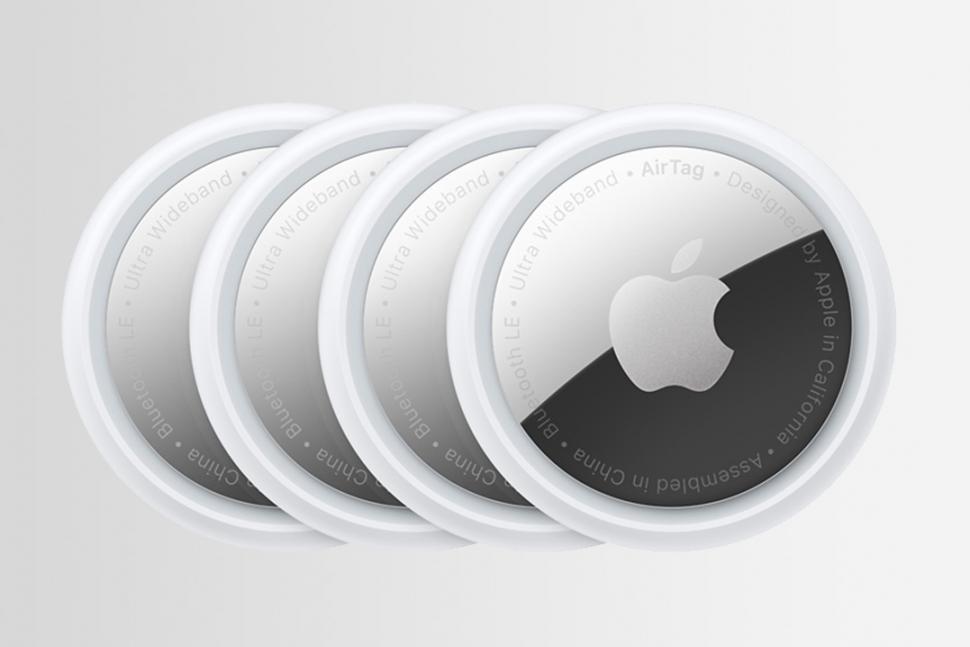 Apple AirTag - 4 pack
Apple AirTag - 4 pack£99.00
VERDICT:
Genuinely innovative solution to tracking your bike without the challenges of GPS trackers
Cheaper than other tracking systems
Easy to mount and hide
Long battery life
Less accurate than GPS
Less useful in rural areas
Weight:
11g
Contact:
At road.cc every product is thoroughly tested for as long as it takes to get a proper insight into how well it works. Our reviewers are experienced cyclists that we trust to be objective. While we strive to ensure that opinions expressed are backed up by facts, reviews are by their nature an informed opinion, not a definitive verdict. We don't intentionally try to break anything (except locks) but we do try to look for weak points in any design. The overall score is not just an average of the other scores: it reflects both a product's function and value – with value determined by how a product compares with items of similar spec, quality, and price.
What the road.cc scores meanGood scores are more common than bad, because fortunately good products are more common than bad.
- Exceptional
- Excellent
- Very Good
- Good
- Quite good
- Average
- Not so good
- Poor
- Bad
- Appalling
Apple AirTags are a relatively cheap and effective way to track your bike and subtly add an element of security. They don't promise the kind of highly accurate GPS tracking of others, but in my opinion the benefits of this comparatively low-tech system outweigh that.
I have tried quite a few bike trackers over the years, with varying degrees of success. They generally tend to fall into one of two camps: unpredictable, or thirsty. Either the battery is rubbish and charging is so frequent that unless you set calendar reminders, you'll spend 50% of the time with it off, or the GPS signal is so unpredictable that something as dastardly as putting the bike in a building makes it unreachable.
> Find your nearest dealer here
The AirTags remove both of these issues by doing something very simple: not using GPS.
This means they don't need to be big, they don't need to have an amazing battery, and they don't need to be completely accurate. Instead, you sacrifice constantly knowing where your AirTag is with the convenience of not having to charge or even touch it for a year or more.
Mounting
AirTags aren't bike specific, so they don't come with a mount designed for that job. I used the most popular one I could find on Amazon, which was essentially an oval shaped piece of plastic that could either be zip-tied under the saddle or screwed into the bottle cage holes on the frame. I ended up hiding mine under a bottle cage and subsequently using security bolts to make it even more difficult to remove. This cost around £7 on top of the AirTag itself.
In this position it is subtle enough that only a really hawk-eyed thief would notice it, and even if they did, the security bolts would act as a fairly significant deterrent.
I mounted it in a few other places, such as under the stem and under the saddle, but that meant using zip-ties that could be cut easily, rather than bolts, so I preferred to mount it beneath the bottle cage.
It's worth noting that a whole industry seems to be starting around AirTag mounts. Online you can find top cap mounts, junction box mounts, mounts for inside the frame, and more. So regardless of where you're looking to mount it, there is likely to be something available now or in the future that will allow you to do it.
Performance
Rather than giving you a specific location using GPS, AirTag works by using the iPhones that are around it. Essentially, it uses other iPhones with Bluetooth to identify where the AirTag is in relation to that phone; so if my phone is 10m away from the AirTag and my phone is in location A, the AirTag knows it is within 10m of location A.
It's considerably less accurate than a GPS tracker as it relies on other people being near the AirTag for it to work, but because the iPhone is the most popular phone in the world, it's less of an issue – basically, every one of them can act as a mast from which your AirTag's location can be found.
I did a few experiments with this, and had my wife carry one around central London. It would update roughly every 30 seconds, which then updates the map so you can see where it is. You can also set the AirTag to 'lost', which means you'll be sent a notification the next time the AirTag is picked up by an iPhone.
All of this means that the more people who are around the AirTag, the easier it is to find – so it's considerably more useful in urban areas than rural. I tested them out in a small village in Kent and in central London and, unsurprisingly, I didn't find it as useful in the area with a smaller population. It still works, but the AirTag gets pinged much less frequently.
As you can probably imagine, you cannot follow the AirTag's route on a map like a GPS, but you can see where it is on a map when it's pinged. If you have an iPhone 11 or newer you can also track the AirTag more accurately once you are in range with your own phone, first telling you how far away the AirTag is, and then the specific direction once you're closer.
It's both a simple and effective method; when I tested this out by having somebody hide an AirTag, it never took me long to find it.
App & setup
Setting up the AirTags is very easy: you just take them out of their packaging and place them near your iPhone. From here you go through a simple wizard that tells you exactly how to use them. The entire process took me under 30 seconds per AirTag.
Once they're set up with your phone they appear as an item in the Find My app, so all you need to do is select the item and it displays where the tag was last seen on the map. It also tells you when the AirTag was last seen, which is really useful in terms of working out how accurate the position might be.
> Inside the mind of a bike thief – learn how to protect your bike
From the app you can also rename the AirTag, make it play a sound to make finding it easier if it's in Bluetooth range, use the find function to identify where it is if in Bluetooth range, and also set the AirTag to lost mode.
Battery life for one AirTag is estimated to be around one year, at which point all you need to do is replace the CR2032 cell. It's way too early to test that claim, but nothing in the month I've been using them suggests they won't last this long.
Cost
We have tried a number of bike trackers over the years but there aren't really any that I would say are comparable to an AirTag. The Vodafone Curve that I tested recently was considerably more expensive at £79 plus a monthly subscription, but it does offer considerably more features and full GPS tracking.
Perhaps the closest rival in terms of a direct competitor is the Tile Pro, which is cheaper by £10, at £89.99 for a pack of four, though roughly the same price for a single unit at £30 (a single AirTag is £29). The Tile Pro works in pretty much the same way as the AirTag, both in terms of functionality and method, which means the AirTag is considerably more effective simply because Tile has 26 million users across the world, while Apple has around a billion.
Conclusion
Overall, I was very impressed by the AirTags, both in terms of performance and usability. They are both simple to use and simple to track. The fact that you only need to change the battery once a year means you instantly remove one of the major challenges facing bike trackers, and this, together with their size, means your choice of mounting options is significantly increased.
You don't get the same level of accuracy in terms of instant tracking as you do with GPS, and they are less useful in rural areas, but aside from that there isn't much not to be impressed with.
Verdict
Genuinely innovative solution to tracking your bike without the challenges of GPS trackers
road.cc test report
Make and model: Apple AirTag - 4 pack
Size tested: n/a
Tell us what the product is for and who it's aimed at. What do the manufacturers say about it? How does that compare to your own feelings about it?
The AirTag is a tracker that can be attached to your bike and found through your phone.
Apple says, 'AirTag is a super-easy way to keep track of your stuff.'
It's a simple message but it's true.
Tell us some more about the technical aspects of the product?
Apple lists:
Size
Diameter: 31.9 mm (1.26 inches)
Height: 8.0 mm (0.31 inches)
Weight
11 grams (0.39 ounces)
Splash, Water and Dust Resistance
Rated IP67 (maximum depth of 1 metre up to 30 minutes) under IEC standard 60529
Connectivity
Bluetooth for proximity finding
Apple-designed U1 chip for Ultra Wideband and Precision Finding
NFC tap for Lost Mode
Speaker
Built-in speaker
Battery
User-replaceable CR2032 coin cell battery
Sensor
Accelerometer
Accessibility
The Find My app is compatible with these iPhone accessibility features:
VoiceOver
Invert Colours
Larger Text
Compatibility with braille displays
System Requirements and Compatibility
Apple ID
iPhone and iPod touch models with iOS 14.5 or later
iPad models with iPadOS 14.5 or later
Environmental Requirements
Ambient operating temperature: -20° to 60° C (-4° to 140° F)
In the Box
AirTag with CR2032 coin cell battery installed
Documentation
Rate the product for quality of construction:
8/10
There isn't much to it but it feels secure and robust.
Rate the product for performance:
9/10
Simple to use and does exactly what it's designed to do.
Rate the product for durability:
8/10
They are IP67 water resistant and feel fairly robust.
Rate the product for value:
7/10
Compared with all other trackers I have tested, which often cost £100s, they are more effective, easier to use, and much cheaper.
Tell us how the product performed overall when used for its designed purpose
Very well. It's simple to set up, it tracks location effectively, and the battery should last over a year.
Tell us what you particularly liked about the product
The long battery life removes one of the main issues that trackers have historically faced.
Tell us what you particularly disliked about the product
Although it still works, it is not as effective in rural areas.
How does the price compare to that of similar products in the market, including ones recently tested on road.cc?
We have tried a number of bike trackers over the years, but there aren't really any that are comparable to an AirTag. The Vodafone Curve I tested recently is considerably more expensive at £79 plus a monthly subscription, but it does offer considerably more features and full GPS tracking.
Perhaps the closest direct competitor is the Tile Pro, which is £10 less at £89.99 for a pack of four, but £30 for a single unit (so £1 more than a single AirTag). The Tile Pro works in pretty much the same way as the AirTag both in terms of functionality and method, which means the AirTag is considerably more effective simply because Tile has 26 million users across the world who can ping a Tile, while Apple has around 1 billion.
Did you enjoy using the product? Yes
Would you consider buying the product? Yes
Would you recommend the product to a friend? Yes
Use this box to explain your overall score
It's excellent: a really simple and effective tracker with a mammoth battery life, simple setup, and multiple mounting options.
About the tester
Age: 33
I usually ride: CAAD13 My best bike is: Cannondale Supersix Evo
I've been riding for: 10-20 years I ride: Every day I would class myself as: Expert
I regularly do the following types of riding: commuting, club rides, sportives, general fitness riding, fixed/singlespeed,
George is the host of the road.cc podcast and has been writing for road.cc since 2014. He has reviewed everything from a saddle with a shark fin through to a set of glasses with a HUD and everything in between.
Although, ironically, spending more time writing and talking about cycling than on the bike nowadays, he still manages to do a couple of decent rides every week on his ever changing number of bikes.
Latest Comments
- lesterama 1 hour 23 min ago
A friend told me that Gravaa doesn't work with inserts. Visma actually glued their tubeless tyres on to avoid tyre detachments! Sounds like a...
- EddyMax 1 hour 41 min ago
I can’t let that one pass. I have no wish to start another (yawn) Carlton/Hatch/etc debate but it must be recognised that taste in cycling...
- Velophaart_95 1 hour 42 min ago
That was my first thought when I saw, and read it........
- qwerty360 1 hour 50 min ago
My understanding was traffic data also suggests that its actually made driving quicker not slower in Paris....
- Benthic 2 hours 5 min ago
"...pedestrians remain unable to access the site due to safety reasons." Who is causing the danger?
- mdavidford 2 hours 12 min ago
You missed the most important part of the Cycling UK rebrand, which was them taking a side in the cycling cat debate.
- mitsky 3 hours 14 min ago
"... struck by a driver..." http://rc-rg.com
- Rendel Harris 3 hours 26 min ago
That's only for longer journeys; obviously for short trips he employs the sedan chair.
- Tony W. 4 hours 7 min ago
In accordance with the highway code ? bus driver was breaking the speed limit, overtaking a child on a bicycle, he should've as far right as...
- polainm 4 hours 23 min ago
One is permantly in misery mode, the other all blacked out in stealth mode.








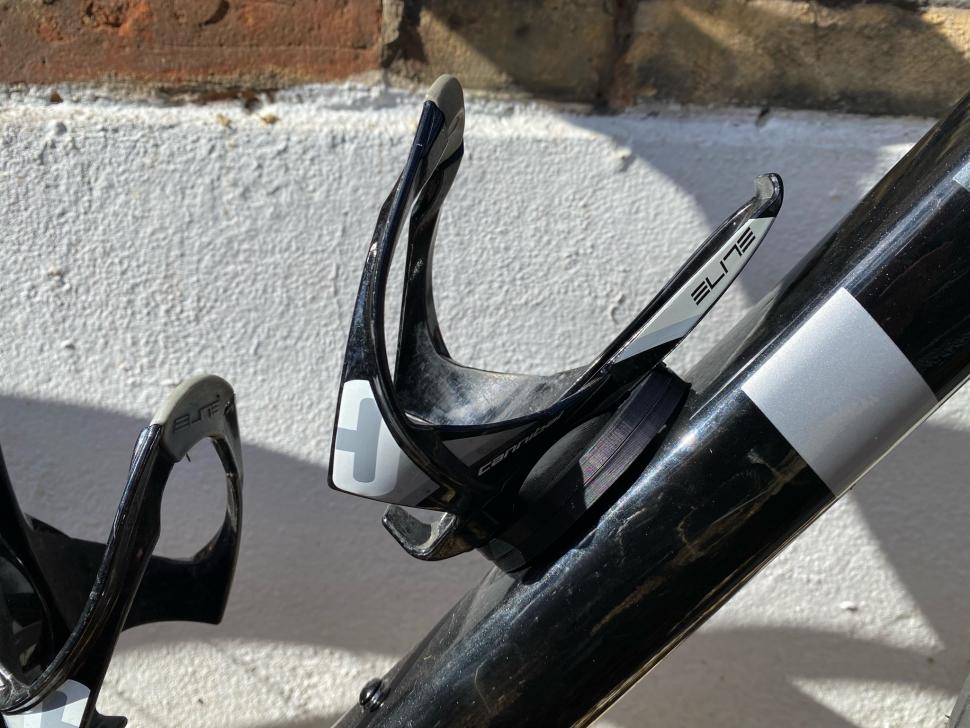
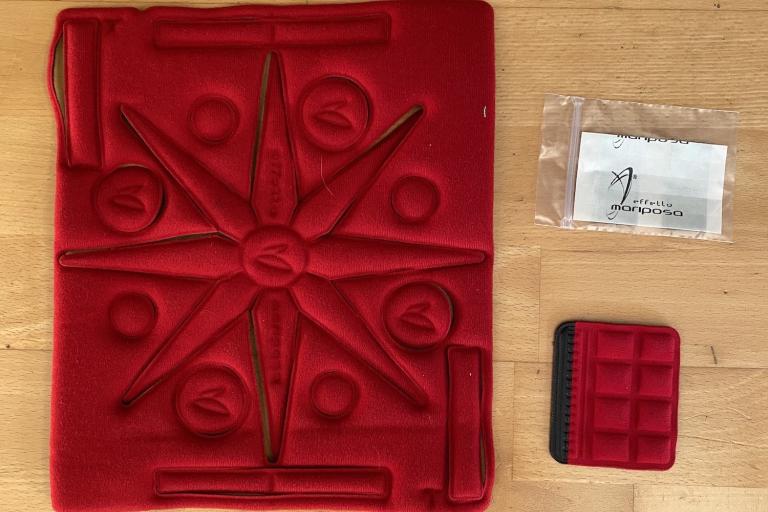
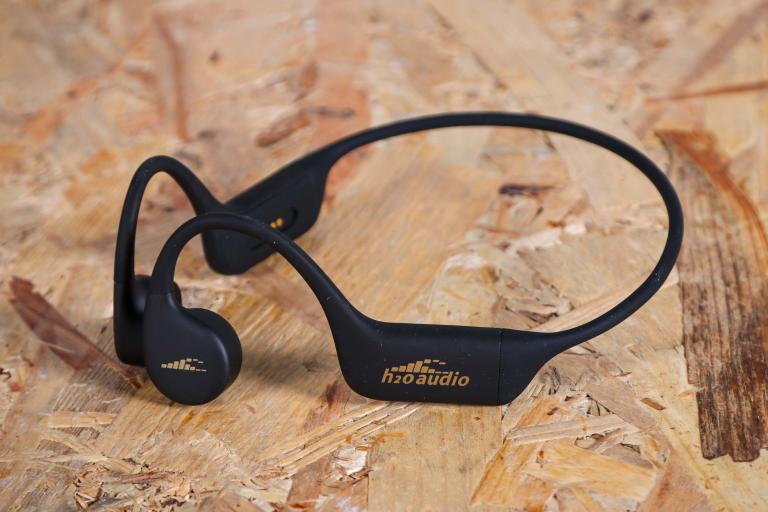
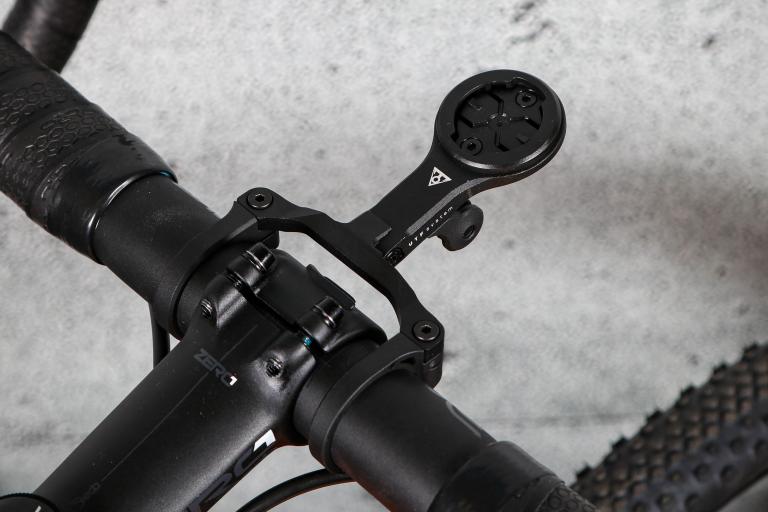
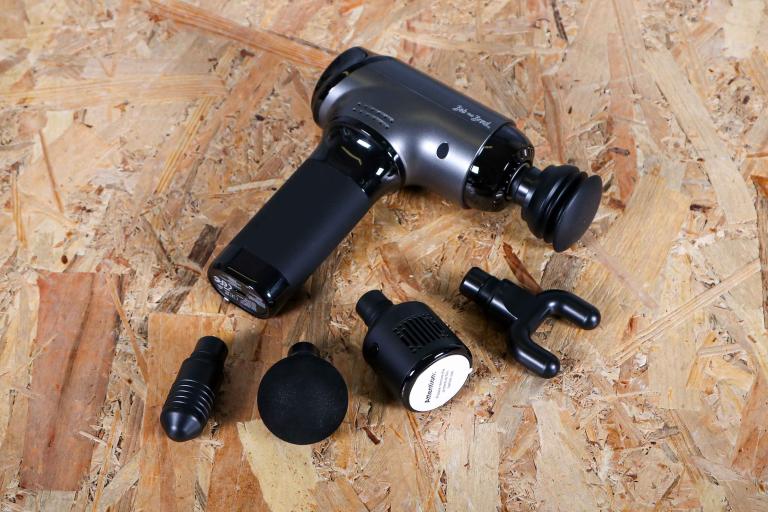
Add new comment
22 comments
One disadvantage is that it's apple only. I know it's in the technical details but I bet people miss that important note.
I'm not sure that you'd get a bike back if it's been stolen. Do thieves leave them out for easy recovery ? If it's in a house - what do you do ?
One comment I would make is that the "find" sound is very quiet and short in comparison to the sound an iPhone makes via "Find my..."
You wouldnt hear it in a busy pub for instance, or even a busy office and it only rings 3 times.
Why hide it? Why not make it obvious so a thief is less likely to take your bike in the first place, surely that is better than having your bike stolen then having to try to find (and get it back) again. I wonder how much help you will get from the local police when you go and try to get your bike back from a professional thief. Surely making your bike less appealing than the one next to it is the best option.
If a thief can see it, they can just wrap it in metal foil to disable it or remove it from the bike completely.
The trick then is displaying in such a way that it isnt easily removable. Possibly you might want 2 in that case 1 visible, 1 hidden.
if its visible it can be ripped off or have a hammer taken to it...
Be careful if you find a lost one and scan it: https://krebsonsecurity.com/2021/09/apple-airtag-bug-enables-good-samaritan-attack/
I think I'd want it inside the frame/out of sight to make it worthwhile. Something a different shape to fit inside a handlebar end would be great...but a tiny market for Apple so it wont happen unfortunatly.
Where else could (the current model) fit? Inside the seat tube? (for aero bikes at least). But then what could you use to ensure it stays there rather than rattling about the frame...
Check out Shane Miller's review of AirTag placement on a bicycle: https://youtu.be/aLtWN1Mp2Qc
The material in the frame, stem, seatpost all reduce the range. The bottle cage seems to work out the best. He also tries a rear reflector AirTag holder which gives a great range:
https://youtu.be/IrYdX_MnECs
I think that some bright people, with a 3d-printer, will create a variety of other options to mount an AirTag in a secure and camoflaged manner.
Cheers 👍🏻
Bubble wrap
seems quite worrying that anyone can get one of these tags, slip it into someones belongings and then track their movements without consent.
Could do it with lots of options though if they wanted to. At least Apple do have some built in anti tracking although then it means more chance of it being discovered by the scoundrel who sticky fingered the tracked object if used for that.
Catch 22 on this one. You can't track thieves without having the potential to track innocents. At least if you have an iphone it will warn you that an AirTag is "following" you.
There are plenty of other trackers that have no safeguards.
Yep, It is definitely a balancing act. However I would rather innocent people aren't put in danger with someone using one of these nefariously just to increase the benefit of recovering property. Apple occasionally do things right. Would hate to see how Google would use their versions.
wheras anyone without an iphone is a second class citizen with no protection
The tracker makes noises when it has been away from it's home phone after a certain time as well. Granted it might have been too late for the "second class citizen", however as myself and others have mentioned, there are lots of other ways to track a person not using these and at least Apple are trying to add security features that others haven't got.
Misuse could be way more serious than having your bike/kit/van surreptitiously tagged so as to be followed, but still something to bear in mind: https://mashable.com/article/apple-airtags-abuse-privacy-concerns
Some of the features mentioned in that article, designed to avoid AirTags being used by stalkers / abusive partners etc could potentially limit their usefulness for tracking your bike if it gets stolen.
So, basically, if someone nicks your AirTag equipped bike, at some point afterwards, if they're still with the bike, it's going to start trying to alert them to the fact it's there.
"So, basically, if someone nicks your AirTag equipped bike, at some point afterwards, if they're still with the bike, it's going to start trying to alert them to the fact it's there"
Yup! This seam to be a clear and serious limitation to the use of this for tracking stolen bikes that's been missed in this review.
If you haven't got a line on where your bike is after three days, it's pretty unlikely you'll ever get it back, as the tag has almost certainly been found and disabled. Unless the bike was immediately put in a place where no iPhone was within 10m or so.
If the thief has an iPhone, they will know the bike was tracked and reported to their location, and will likely dump it immediately, *regardless* of whether they can find/remove the tag. If they/anyone they live/associate with don't have an iPhone (very unlikely) you then have longer to find your bike.
There are tutorials for disconnecting the speaker in the AirTag. Of course, this is just as likely to be abused by stalkers as used by cyclists hoping to track their bikes.